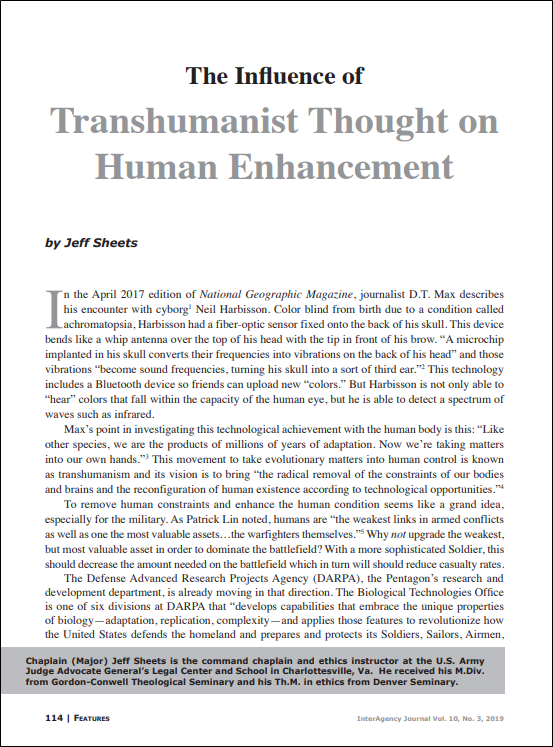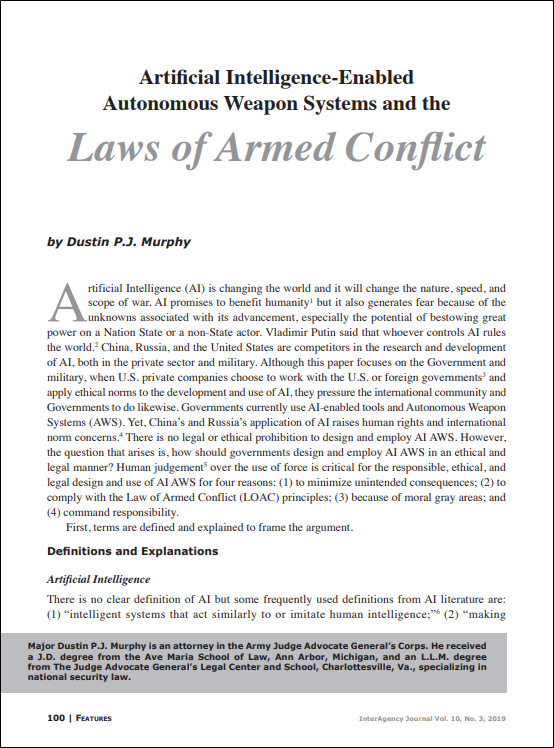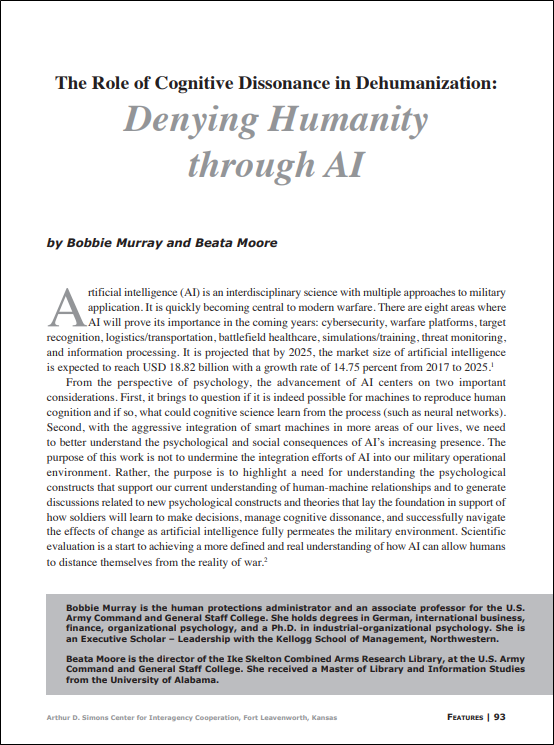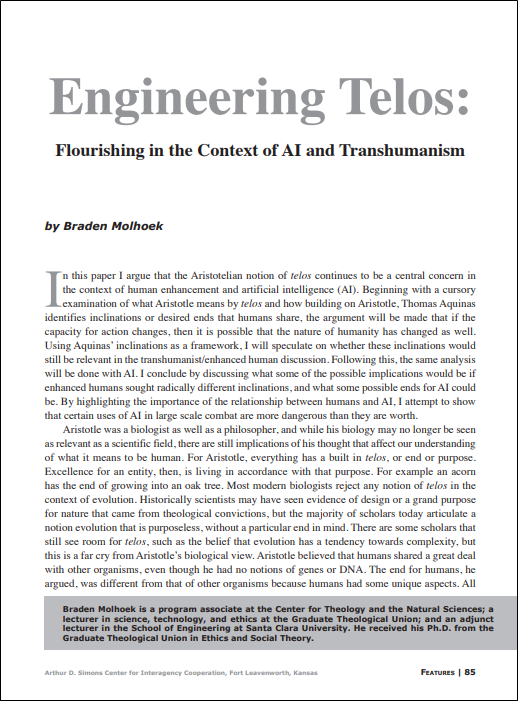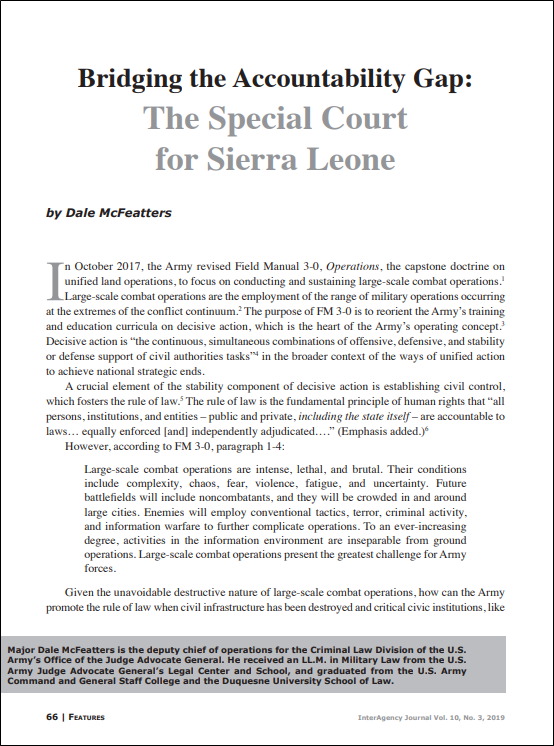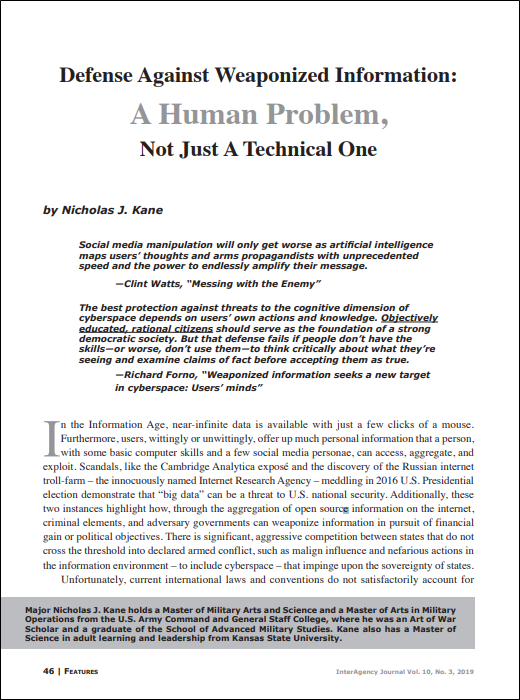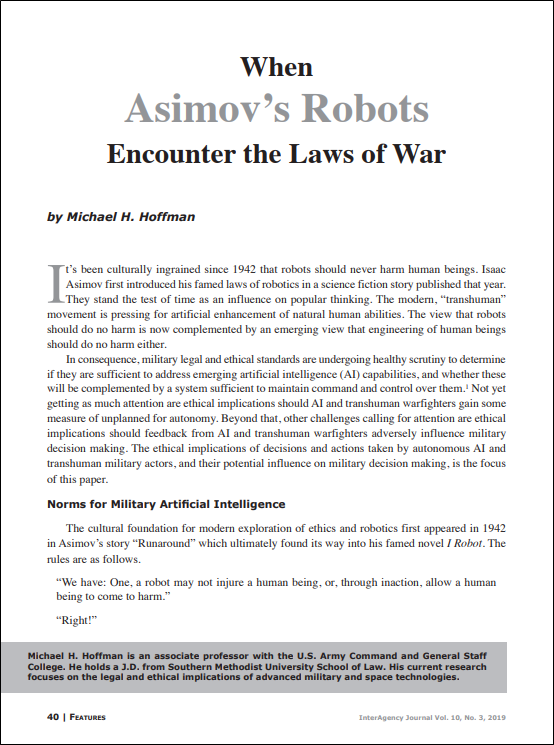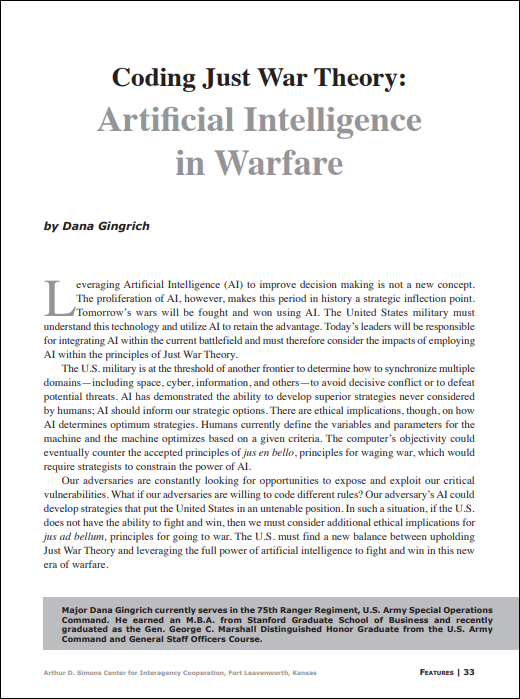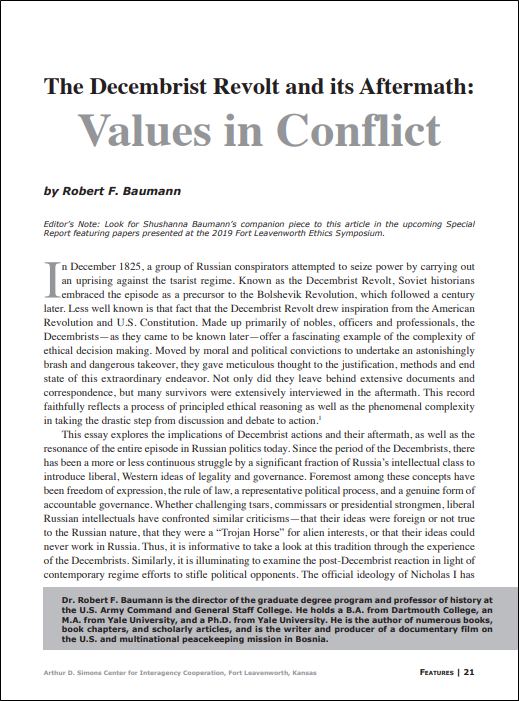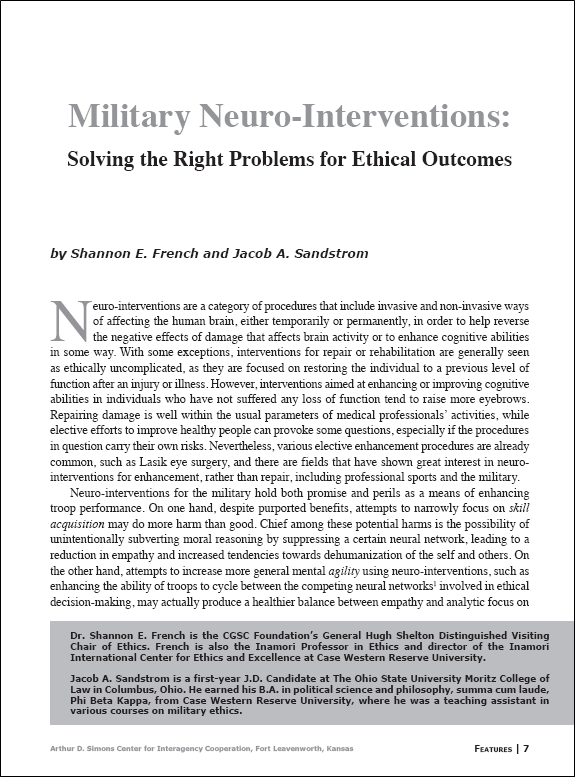Tag: Fort Leavenworth Ethics Symposium
Featured article: The Influence of Transhumanist Thought on Human Enhancement by Jeff Sheets In the April 2017 edition of National Geographic Magazine, journalist D.T. Max describes his encounter with cyborg Neil Harbisson. Color blind from birth due to a condition called achromatopsia, Harbisson had a fiber-optic sensor fixed onto the back of his skull. This […]
... Read MoreFeatured article: Artificial Intelligence-Enabled Autonomous Weapon Systems and the Laws of Armed Conflict by Dustin P.J. Murphy Artificial Intelligence (AI) is changing the world and it will change the nature, speed, and scope of war. AI promises to benefit humanity but it also generates fear because of the unknowns associated with its advancement, especially the potential of […]
... Read MoreFeatured article: The Role of Cognitive Dissonance in Dehumanization: Denying Humanity through AI by Bobbie Murray and Beata Moore Artificial intelligence (AI) is an interdisciplinary science with multiple approaches to military application. It is quickly becoming central to modern warfare. There are eight areas where AI will prove its importance in the coming years: cybersecurity, warfare […]
... Read MoreFeatured article: Engineering Telos: Flourishing in the Context of AI and Transhumanism by Braden Molhoek In this paper I argue that the Aristotelian notion of telos continues to be a central concern in the context of human enhancement and artificial intelligence (AI). Beginning with a cursory examination of what Aristotle means by telos and how […]
... Read MoreFeatured article: Bridging the Accountability Gap: The Special Court for Sierra Leone by Dale McFeatters In October 2017, the Army revised Field Manual 3-0, Operations, the capstone doctrine on unified land operations, to focus on conducting and sustaining large-scale combat operations. Large-scale combat operations are the employment of the range of military operations occurring at the […]
... Read MoreFeatured article: Defense Against Weaponized Information: A Human Problem, Not Just A Technical One by Nicholas J. Kane In the Information Age, near-infinite data is available with just a few clicks of a mouse. Furthermore, users, wittingly or unwittingly, offer up much personal information that a person, with some basic computer skills and a few social […]
... Read MoreFeatured article: When Asimov’s Robots Encounter the Laws of War by Michael H. Hoffman It’s been culturally ingrained since 1942 that robots should never harm human beings. Isaac Asimov first introduced his famed laws of robotics in a science fiction story published that year. They stand the test of time as an influence on popular […]
... Read MoreFeatured article: Coding Just War Theory: Artificial Intelligence in Warfare by Dana Gingrich Leveraging Artificial Intelligence (AI) to improve decision making is not a new concept. The proliferation of AI, however, makes this period in history a strategic inflection point. Tomorrow’s wars will be fought and won using AI. The United States military must understand […]
... Read MoreFeatured article: The Decembrist Revolt and its Aftermath: Values in Conflict by Robert F. Baumann In December 1825, a group of Russian conspirators attempted to seize power by carrying out an uprising against the tsarist regime. Known as the Decembrist Revolt, Soviet historians embraced the episode as a precursor to the Bolshevik Revolution, which followed […]
... Read MoreFeatured article: Military Neuro-Interventions: Solving the Right Problems for Ethical Outcomes by Shannon E. French and Jacob A. Sandstrom Neuro-interventions are a category of procedures that include invasive and non-invasive ways of affecting the human brain, either temporarily or permanently, in order to help reverse the negative effects of damage that affects brain activity or to […]
... Read More"*" indicates required fields
